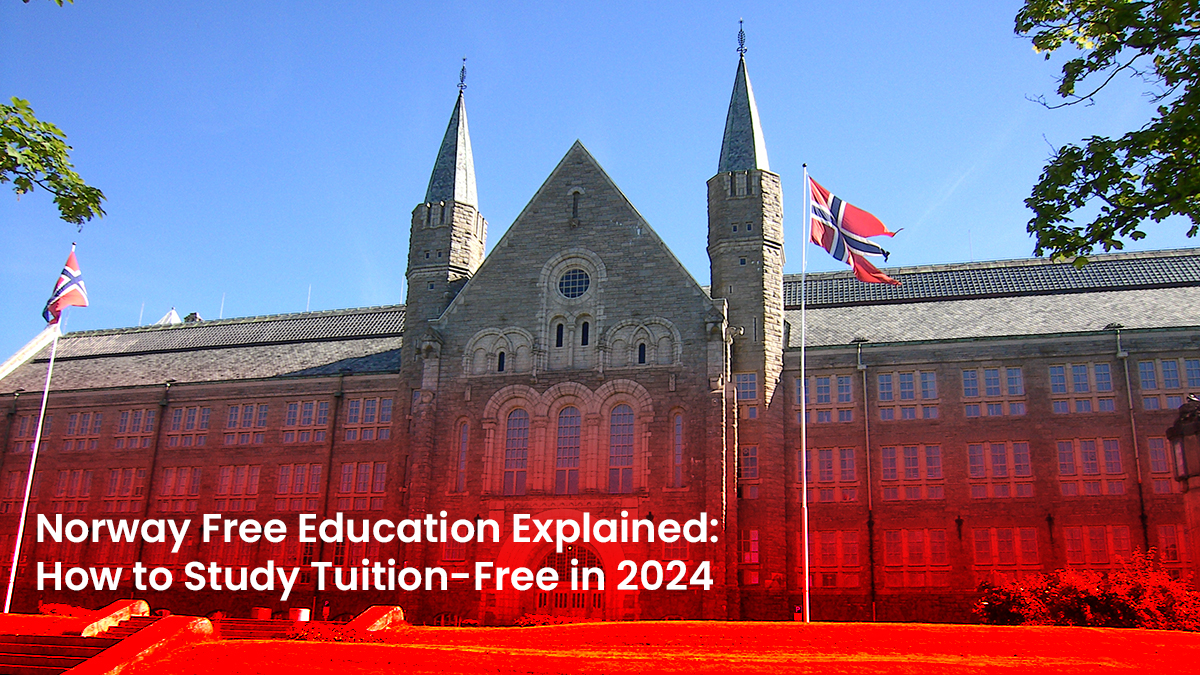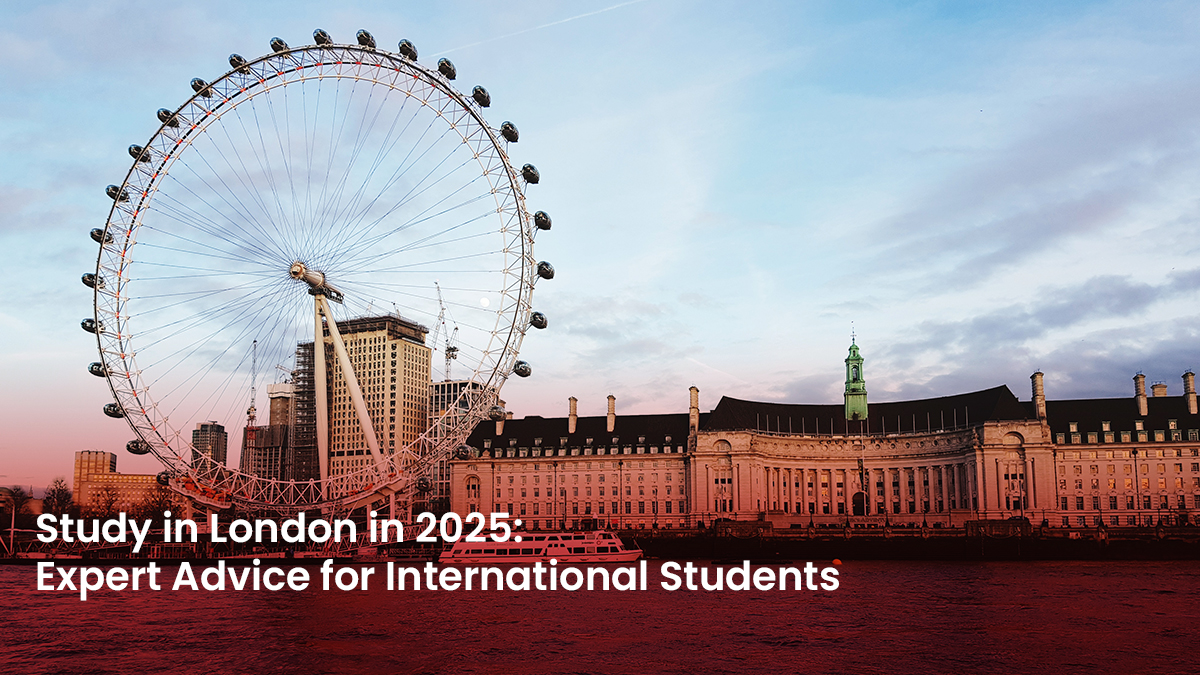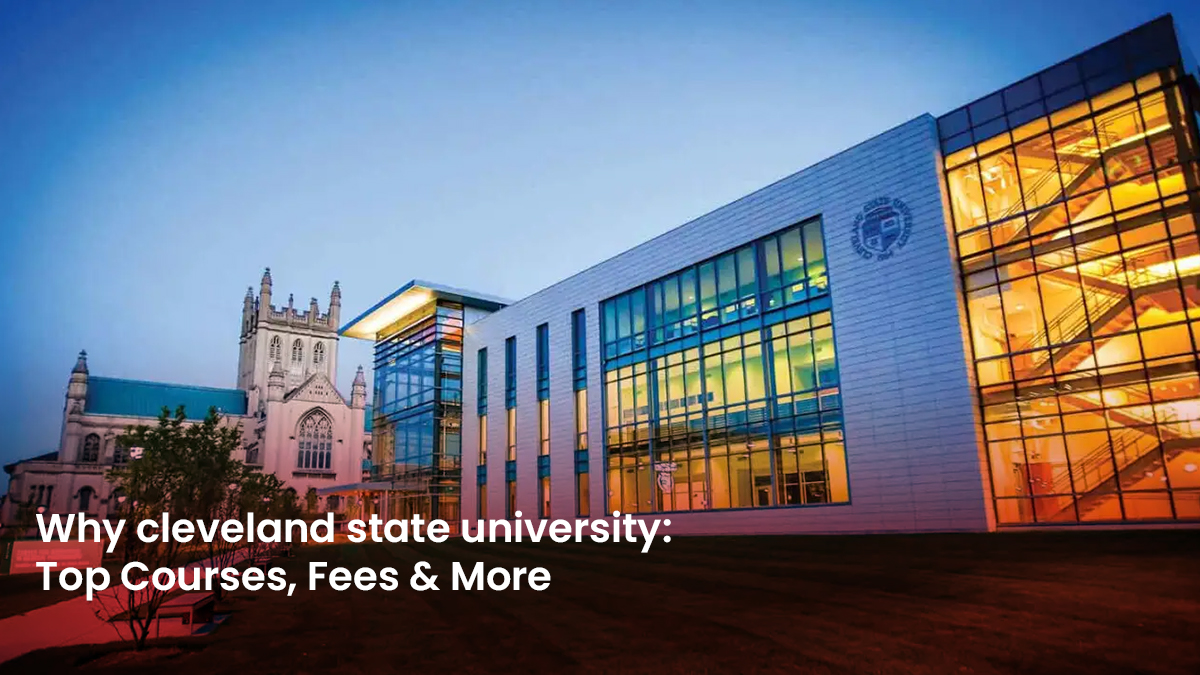Studies show that Norway is one of the most appreciated study destinations by international students in Europe.
Key Points at a Glance
- A 2014 awards list saw Norway in 7th place for “International Student Satisfaction” in Europe.
- Most public education institutions in Norway don’t charge tuition for international students.
- ‘Free tuition’ is an ongoing debate among Norwegian policymakers.
- Norwegian universities (8 out of 10) are seeing a post-COVID surge in foreign enrollment demand.
In 2014, it ranked seventh among European countries—in terms of international student satisfaction—on the International Student Satisfaction Awards list by Study Portals.
Part of Norway’s appeal for international students is that most public education institutions don’t charge tuition for them to study in Norway. This has been a topic of debate earlier this decade among those in favor of the system and those who propose reform. Nevertheless, Norway is a silent hit as a study destination among international students. Aside from the quality of life, amazing scenic views, and job opportunities it offers, Norway promotes a mentality for equality and a flat hierarchy thus, producing an impressive workforce.
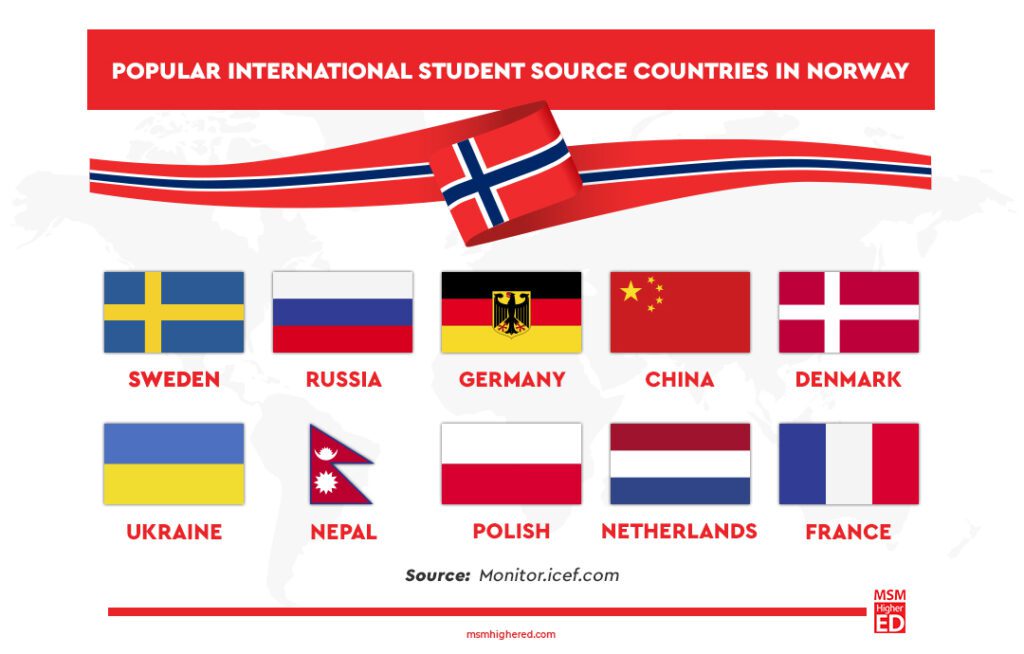
Post-COVID Numbers, News
In April 2021, it was reported that eight out of 10 Norwegian universities are experiencing an increase in foreign student applications. For instance, Oslo Metropolitan University (OsloMet)—established in 2018; the second youngest among Norway’s newest universities—is experiencing a 184 percent increase (from 1,454 to 4,134 foreign applicants) in terms of demand for its international programs.
Other academic institutions are also experiencing an increase in demand from foreign students, which one leader describes as “startling.”
“We have received a startlingly large increase in international applicants for masters studies,” said Marit Reitan, pro-rector for education at the Norwegian University of Science and Technology (NTNU), in a news report.
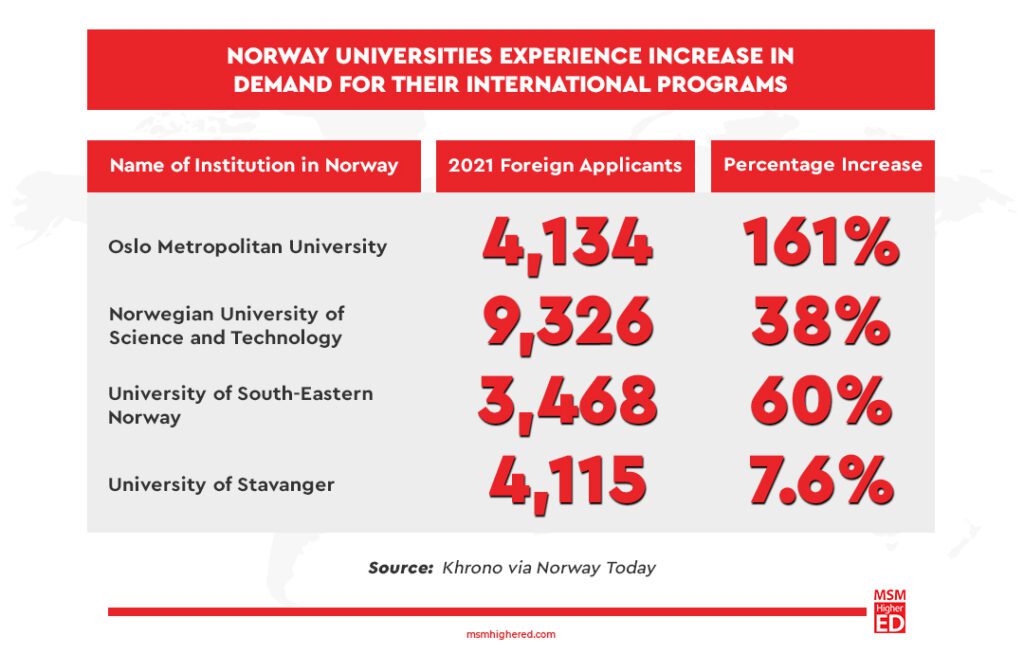
“Much of the reason can be attributed to the quality of the education provided in this country,” said Amine Fquihi of International Students’ Union of Norway. Fquihi adds that Norwegian universities at the top of global rankings contribute to the current influx of foreign students as well.
As of July 7, the government of Norway announced that it is opening its country to welcome back international students on Aug. 1.
“Those who have been admitted to a study programme at a Norwegian school or higher education institution, will be able to come to Norway as planned,” said a statement on its website.
“I am pleased that we are now able to open up for foreign students, but we have not reached the finish line yet. Although the restrictions on entry are set to be eased, the students will still be subject to the rules concerning testing, registration on entry, quarantine and, if relevant, quarantine hotels,” said Minister of Justice and Public Security Monica Mæland.
Norway is currently in the process of major reform in response to the greater internationalization of its higher education sector.
“Today, it is too randomly decided where international students are coming to Norway from. Other countries are attracting skilled personnel from abroad and we will now establish a working group that shall work out recommendations on how Norway should profile itself as a knowledge nation and which international students we want to attract,” said Minister of Research and Higher Education Henrik Asheim.








